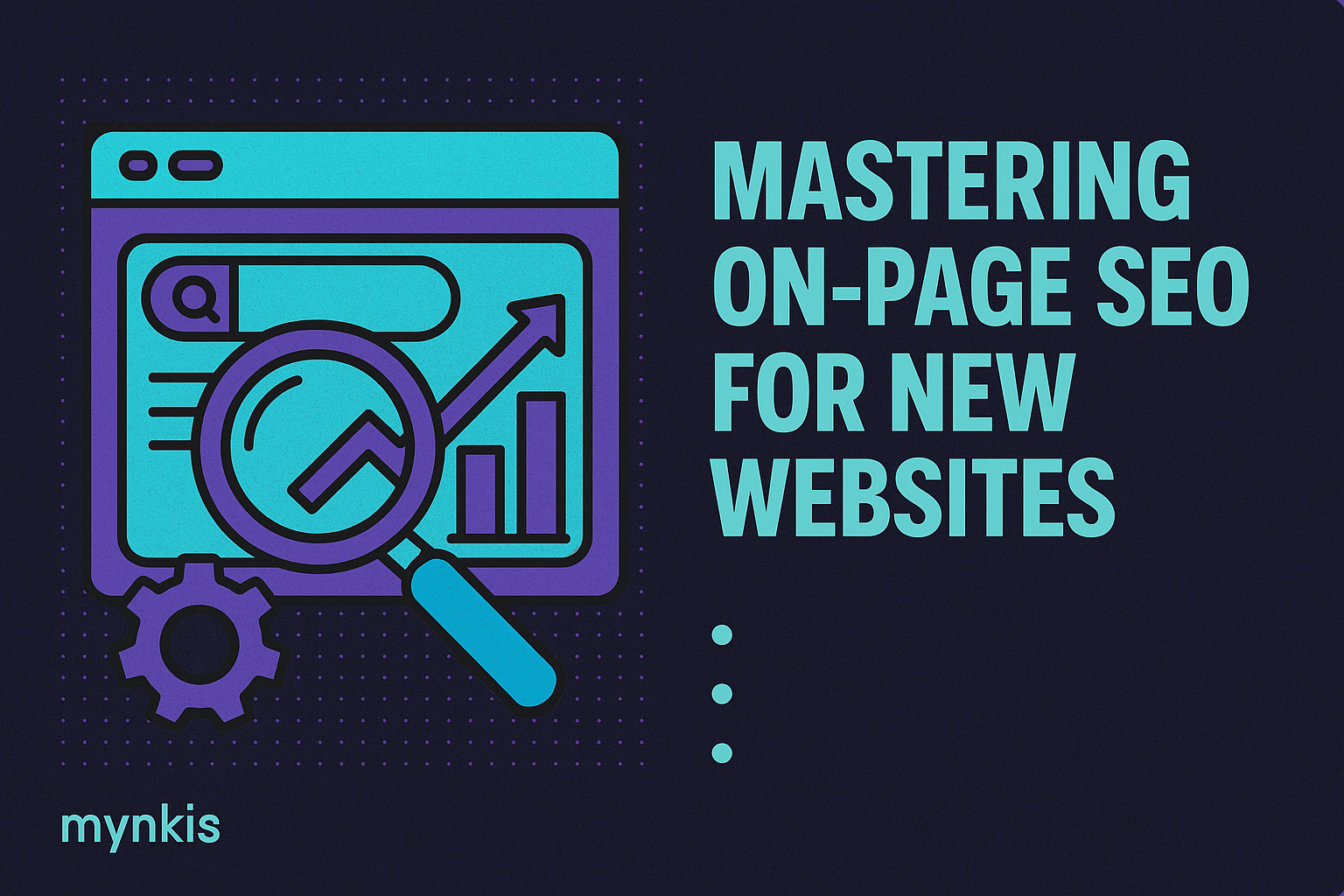Schedule a Demo
When you launch a new website, your goal is to reach the right audience effectively and quickly. On-page SEO becomes your most powerful tool for enhancing visibility on search engine results pages (SERPs). In my work with healthcare facilities, I've seen first-hand how crucial it is to implement on-page SEO correctly from the get-go to ensure your site gains the traction it deserves.
Before you start optimizing, you need to know which keywords will resonate with your audience. Start with tools like Google Keyword Planner to identify terms that potential patients and healthcare providers might use. For instance, clinics and hospitals often find success with keywords like "custom software development" and "enterprise web solutions," integrating them naturally into page titles, headings, and content. Based on available research, focus on keywords that balance search volume with relevance and competition.
Your page title and meta description are the first things search engines and users see. Craft titles that are compelling and include your primary keywords—like "custom software development for healthcare"—within the first 60 characters. Your meta description should be concise, ideally between 150-160 characters, and provide a clear summary of the page while also including related keywords such as "secure websites for patient portals."
URLs are often overlooked, yet they significantly impact your SEO. They should be clean, descriptive, and include keywords when possible. For example, a URL like /patient-portals/custom-software-development/ directly conveys what the page is about and aligns with our keywords. Make sure your URLs use hyphens instead of underscores and keep them as short and relevant as possible.
The content on your website is what will ultimately keep users engaged. It needs to be informative, valuable, and tailored to the needs of clinicians, managers, and C-level executives who might be visiting your site. In my experience, having content that dives deep into the benefits of "enterprise web solutions" for data management can drive significant user engagement. Remember, quality content not only improves your SEO but also establishes your site as an authority in the healthcare industry.
Header tags (H1, H2, H3, etc.) organize your content and help both users and search engines understand the structure of your page. Use an H1 for your main title, incorporating your primary keyword naturally. Follow this with H2s and H3s to break down the content into more digestible sections. For example, an H2 such as "Benefits of Custom Software Development in Healthcare" can better categorize your information and improve SEO.
Images are essential for engaging visitors but don't forget to optimize them for SEO. Use descriptive file names and alt text that include your keywords. For example, an image file named "custom-software-development-benefits.jpg" with an alt text of "custom software development for enhancing data management in healthcare" will boost your SEO. Make sure your images are also compressed to improve page load times, another critical SEO factor.
Internal linking can improve your site's SEO by helping search engines understand the relationship between different pages on your site. Use relevant anchor text with keywords when linking to other pages. For instance, linking to a page about "secure websites for patient portals" with the text "Learn more about our enterprise web solutions for patient portals" can guide users to more information and improve site structure.
With more than half of all web traffic coming from mobile devices, having a mobile-friendly site is non-negotiable. Ensure your site is responsive and loads quickly on all devices. Google's Mobile-Friendly Test tool can help you assess and optimize. Remember, mobile optimization impacts both SEO and user experience, which is vital for keeping your healthcare audience engaged and satisfied.
Page load speed is crucial for both SEO and user satisfaction. Tools like Google PageSpeed Insights can help you identify areas for improvement. A fast-loading site with optimized images and efficient code not only ranks better but also provides a better experience for your visitors. In my work with healthcare executives, I've found that optimizing load speed is often a decisive factor in retaining patient engagement.
Rich snippets, like star ratings or event information, can make your pages stand out in search results. Implement schema markup to provide search engines with extra details about your pages, enhancing the visual appeal and click-through rates of your listings. For healthcare sites, think about adding snippets for doctor profiles, clinic hours, or patient reviews to provide more context right in the SERPs.
Search engines favor websites that are regularly updated. Keeping your content fresh not only improves SEO but also keeps your site relevant to your audience. Consider regularly updating your blog with insights on "custom software development" trends or how "enterprise web solutions" can improve patient data management.
While on-page SEO is incredibly important, it's just one part of the puzzle. Other factors, like off-page SEO (backlinks) and technical SEO (site structure, URL indexing), play significant roles in your site's overall ranking. By understanding these limitations, you can prioritize where to focus your SEO efforts for the best results.
If the details of on-page SEO feel overwhelming, consider engaging a professional SEO expert. They can provide personalized advice tailored to your specific goals and industry nuances. Given the complexity of healthcare SEO, expert guidance can help you navigate the myriad of requirements and optimize your site for maximum visibility.
